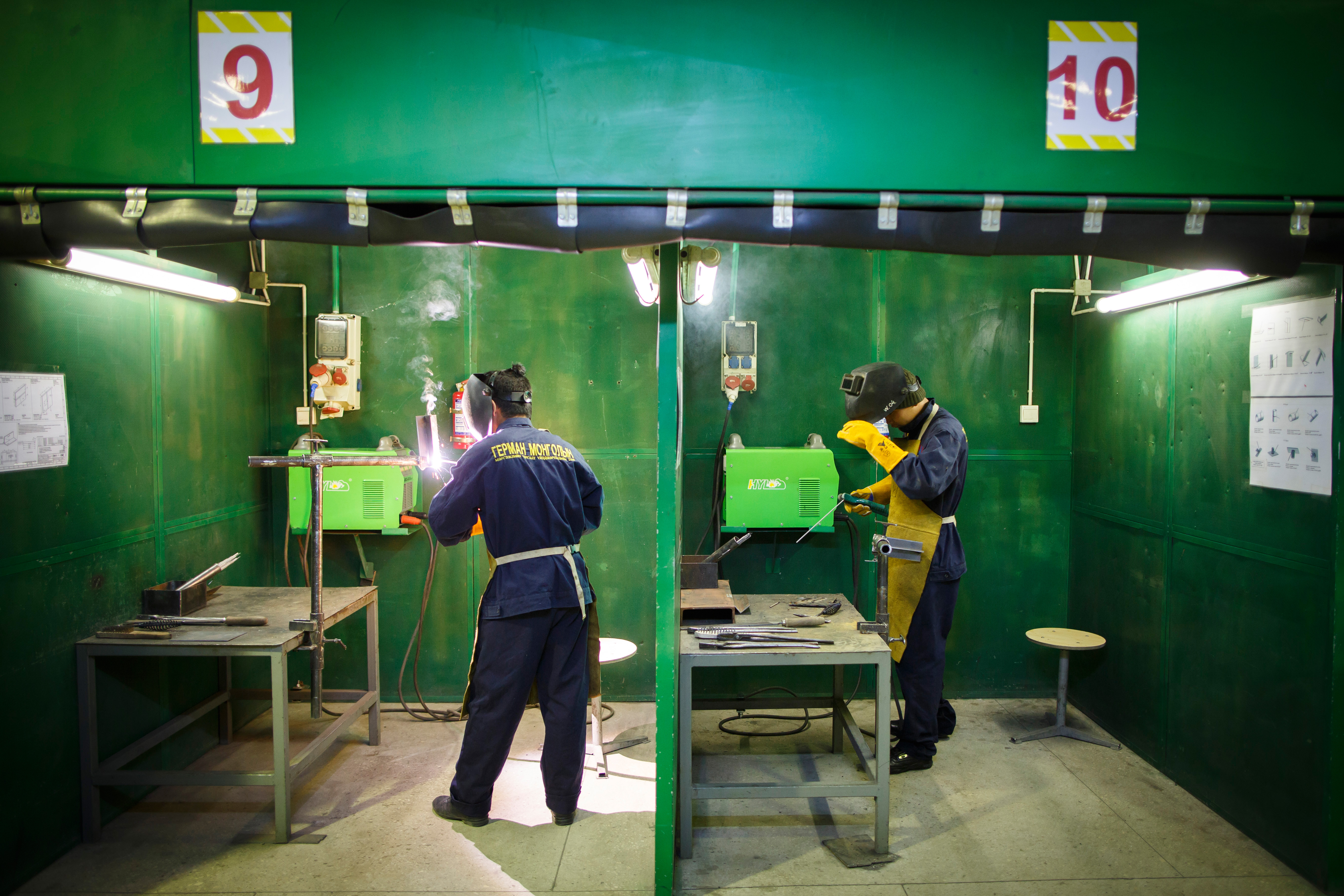Training workshop for future welders at the Hasu Megawatt training centre, Ulan Bator, Mongolia
Copyright© Thomas Trutschel/photothek.net
Core area “Sustainable economic development, training and employment” Improving the business environment, training skilled workers
The country’s economic diversification remains hampered by weak government authorities, inadequate infrastructure, the lack of competitiveness of local businesses, and a shortage of well-trained skilled workers. Germany is supporting Mongolia’s Ministry of Economy and Development in expanding measures to promote business and investment, developing relevant services for investors and fostering knowledge and technology transfer.
An important aim of these measures is to improve the business environment for micro, small and medium-sized enterprises (MSMEs). MSMEs provide the majority of jobs in Mongolia and offer huge potential for increasing economic diversity and creating new employment opportunities outside of the mining industry.
Technical and vocational education and training
Mongolia’s technical and vocational education system is not currently able to meet the demand for skilled workers resulting from the growing economy. It is underfunded and insufficiently geared towards the needs of businesses. The BMZ supports Mongolia’s Ministry of Education and Science in collaborating with the private sector to develop a dual vocational training model and fund vocational schools according to performance-based criteria. With German support, seven vocational schools in various regions are being developed into vocational centres of excellence (“Knowledge Hubs”). In addition, training and upskilling programmes are being created for vocational teachers and trainers. This is contributing to the necessary economic development in the different regions of Mongolia.
The BMZ also supports the German-Mongolian Institute for Resources and Technology (GMIT). Founded in 2013, the institute partners with six German universities to offer practice-oriented bachelor’s courses in resources and process engineering, environmental technologies, mechanical engineering, industrial engineering and management, mechatronics engineering and energy development and electrical engineering. The institute also offers master’s courses in “Advanced Mineral Resources Development” and “International Management of Resources and Environment”.
The BMZ is funding the construction of a new laboratory and teaching building, and is assisting the GMIT in introducing a viable financing model, expanding its research and teaching programmes and training teaching staff.
As at: 20/06/2024
